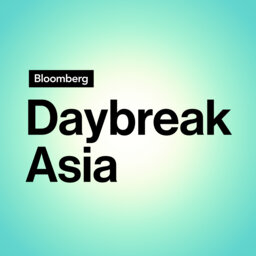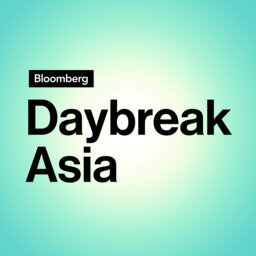Tencent Earnings, US July Inflation Data Seals Fed Cut Bets
Featuring:
Robert Lea, Bloomberg Intelligence Senior Analyst
Keyu Jin, Economist and Author of 'The New China Playbook'
Jamie Battmer, Chief Investment Officer at Creative Planning
Apple: https://podcasts.apple.com/us/podcast/bloomberg-daybreak-asia/id1663863437
Spotify: https://open.spotify.com/show/0Ccfge70zthAgVfm0NVw1b
TuneIn: https://tunein.com/podcasts/Asian-Talk/Bloomberg-Daybreak-Asia-Edition-p247557/?lang=es-es
In 1 playlist(s)
Bloomberg Daybreak: Asia Edition
Listen for business and finance news centered in the Asia-Pacific region. Host Doug Krizner brings…Social links
Follow podcast
Recent clips

US-Iran Risks Hit Markets, Trump: Iran Has Just Days to Deal
20:58

Japan's Takaichi Formally Elected PM, Stocks Get Tech Boost
23:00

US-Japan Trade Deal Details, AI Anxiety Lingers
20:58
 Bloomberg Daybreak: Asia Edition
Bloomberg Daybreak: Asia Edition